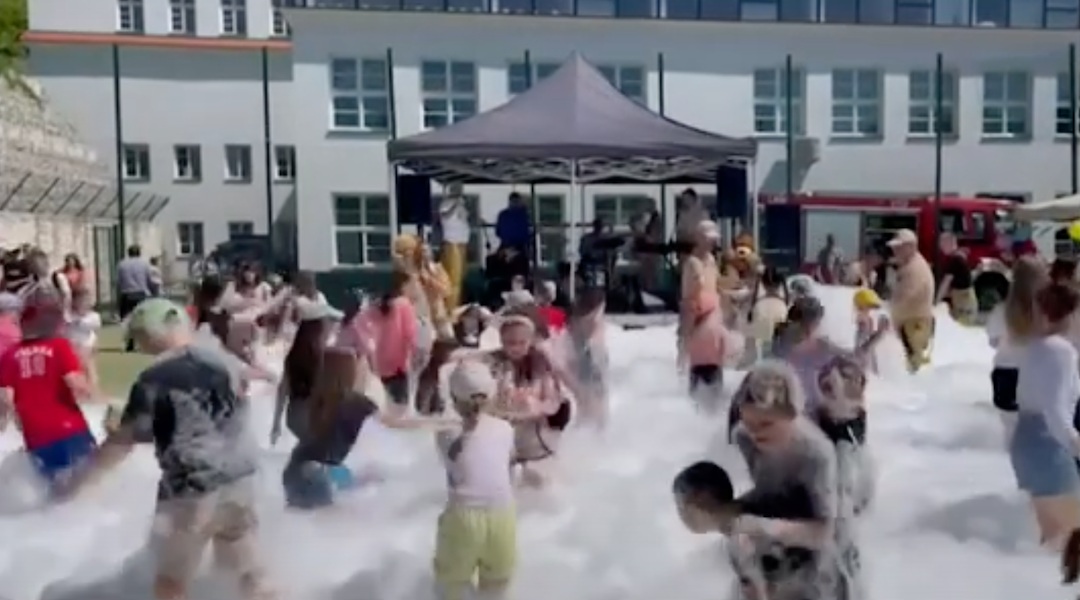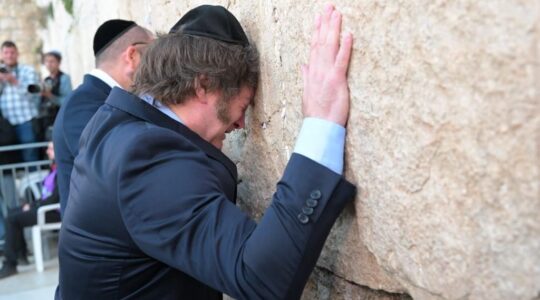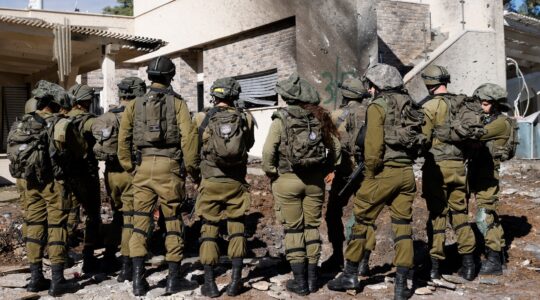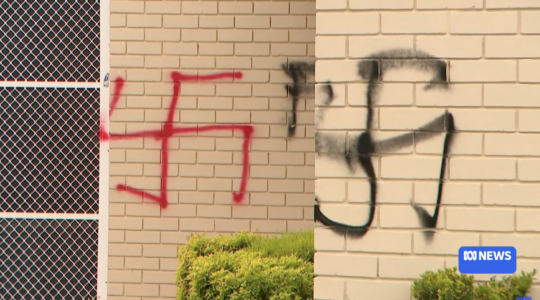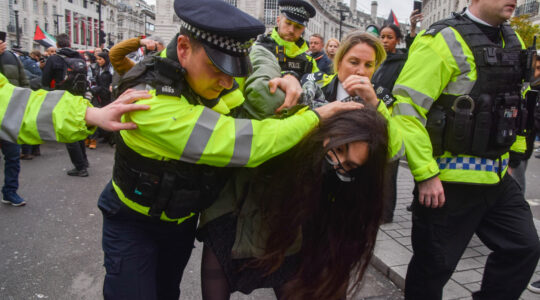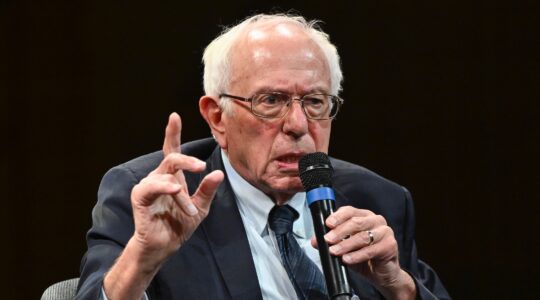(JTA) — The chief rabbi of Poland sent an angry letter to the mayor of Kazimierz Dolny, condemning the eastern Polish town for throwing a festive children’s bubble party on the site of a former Jewish cemetery where the dead are still buried.
The Kazimierz Dolny authorities filled the former cemetery with bubbles for Children’s Day, a holiday celebrated on June 1 in many European countries.
In the letter sent to to Mayor Artur Pomianowski on Tuesday, Michael Schudrich wrote, “the party organized on the yard, which was after all fun on the graves, proves that for the municipal authorities, respect for human burial is not an important value.”
Schudrich told the Jewish Telegraphic Agency that it was “outrageous” that Pomianowski posted a video of the bubble party on his mayoral Facebook page.
“Is this what we want to teach our children about how we treat the dead, our ancestors?” Schudrich said.
Bartłomiej Godlewskia, Kazimierz Dolny’s deputy mayor, sent a letter in response to Schudrich on Wednesday.
“I regret the wrong decision to organize Children’s Day. We share a common history and a common home, and it was never our intention to hurt feelings — it was human error. I hope that this event will not interfere with our dialogue and cooperation in the future,” he wrote. “I extend my apologies to you to the entire Jewish community.”
The former cemetery, now a children’s play area next to an elementary school, was demolished roughly 50 years ago, but the bodies were not removed. Jewish headstones were used to pave roads and used as building materials throughout Eastern Europe during the communist era.
Schudrich said that for the past five years, representatives of Polish Jewry have been trying to work with several mayors of Kazimierz Dolny, including the current one, as well as the town council, to move the cemetery so that it would not function as a playground. He estimated that a few hundred Jews are buried at the site.
“We offered a really nice solution that would involve us helping to fund a new playground and moving the cemetery to an empty field nearby,” said Schudrich. “But they keep stalling or canceling meetings and it seems like the town just doesn’t care.”
“We deal with several cemeteries every week; 99% are resolved in a very positive and even sometimes quick manner. Kaziemierz is from the 1%,” he added.
After Godlewskia’s response on Wednesday, Schudrich said that he is “following up” on his request to meet with Mayor Pomianowski about a solution for moving the former cemetery.
It is believed that the 19th-century Rabbi Yehezkel Taub of Kuzhmiri is buried in the former cemetery. Haredi Orthodox followers of the Modzitz Hasidic dynasty, founded by the rabbi, flock to the cemetery-turned-playground each year to pay their respects, but their demand to protect the site has not been met.
Jews have lived in Kazimierz Dolny since the 14th century. The town today is a major local tourist attraction known for its stunning architecture on the banks of the Vistula river. Before the Nazi invasion in World War II, there were 1,400 Jews in Kazimierz Dolny, roughly half of its population. Fewer than 20 of the town’s Jewish inhabitants are thought to have survived the Holocaust.
In his letter to the town’s mayor, Schudrich wrote that the bubble party “puts into question whether further talks about the site make sense, and casts doubt on whether, regardless of religion, both parties are guided by common values drawn from it.”
The director of the town’s Kazimierz Center for Culture, Promotion and Tourism also released an apology statement on Wednesday.
“I declare that we had no bad intentions when organizing this event. We didn’t want to hurt anyone or hurt anyone’s religious feelings,” wrote Józef Skrzeczkowski.
JTA has documented Jewish history in real-time for over a century. Keep our journalism strong by joining us in supporting independent, award-winning reporting.
